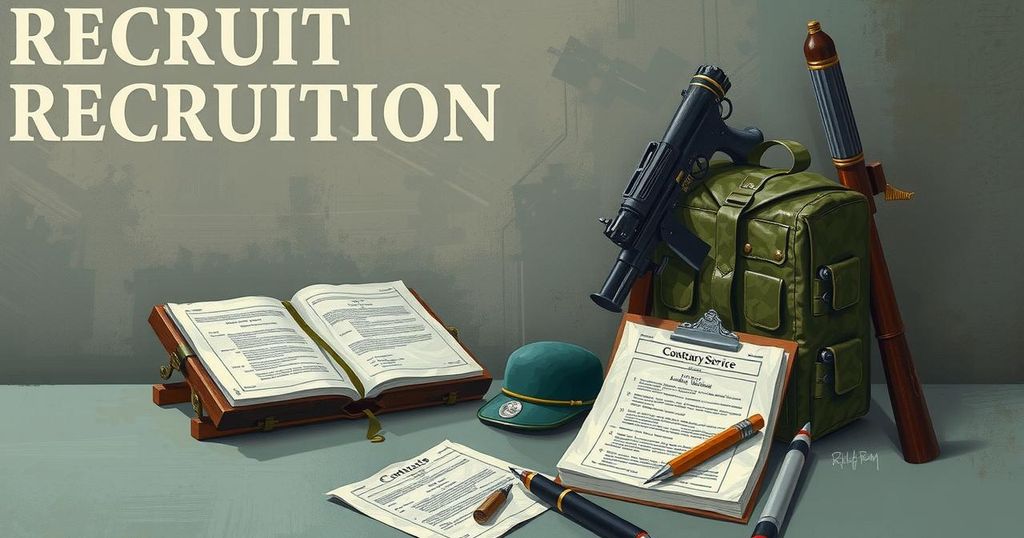Russia Recruits Cubans for the Frontlines in Ukraine

Ukrainian intelligence estimates around 20,000 Cubans have joined the Russian military since 2022, lured by high salaries and citizenship. Currently, 6,000 to 7,000 are on the front lines, and 200 to 300 have reportedly died in combat. Recruitment occurs through social media and informal channels, often with false promises. Cuba has issued mixed responses, and accusations of government complicity have surfaced.
In a troubling turn of events, Ukrainian intelligence suggests that nearly 20,000 Cubans have entered into contracts with the Russian military since the onset of the large-scale invasion in 2022. Reports indicate that these individuals were attracted by enticing offers of high salaries, Russian citizenship, and potential job prospects. Notably, Cuban citizens enjoy visa-free entry to Russia for up to 90 days, facilitating their journey.
Recruiters are reportedly enticing individuals with monthly compensation ranging from $2,000 to $2,500. Current estimates from Ukrainian defense officials suggest that between 6,000 and 7,000 Cubans are actively engaging on the front lines, establishing themselves as the second-largest group of foreign fighters alongside North Koreans. Sadly, reports indicate that approximately 200 to 300 Cubans have lost their lives in combat.
How exactly are Cubans being drawn into this conflict? Social media platforms, informal recruiters, and word of mouth have been critical in facilitating recruitment efforts. Eyewitness accounts reveal that many Cubans were misled into believing they would take up noncombat roles, such as construction work, only to find themselves thrust into active combat zones. Alarmingly, contracts they signed were often in Russian, a language many recruits do not understand.
A detailed analysis conducted by BBC uncovered numerous names matching those from leaked Russian military documents to online social media profiles belonging to Cubans. Furthermore, investigations by Radio Free Europe utilized satellite imagery and geolocation techniques to verify that these recruits had indeed been trained by Russia’s 106th Airborne Division.
Cuba’s official response has been somewhat muddled and inconsistent. Following the emergence of reports surrounding a human trafficking network in 2023, the Cuban government arrested 17 individuals, only to later release them. Meanwhile, accusations of complicity have surfaced from Ukrainian officials, with legislator Maryan Zablotskyy asserting that 40% of the recruited Cubans are affiliated with the Cuban military. He has since advocated for sanctions against the Díaz-Canel administration.
Some captured Cuban fighters have voiced their disillusionment, claiming they were duped and presently remain imprisoned without recognition or support from either the Russian or Cuban governments. Disturbingly, some have expressed a preference for continued imprisonment rather than returning to their homeland.
In summary, the recruitment of Cubans to fight in Ukraine has raised numerous ethical and humanitarian concerns. With thousands allegedly recruited under false pretenses and significant casualties already reported, the involvement of both nations is increasingly scrutinized. As the situation continues to develop, the implications for international relations and Cuban citizens remain troubling. The government’s ambiguous stance and allegations of complicity pose further complications for Cuba’s image on the world stage.
Original Source: san.com








